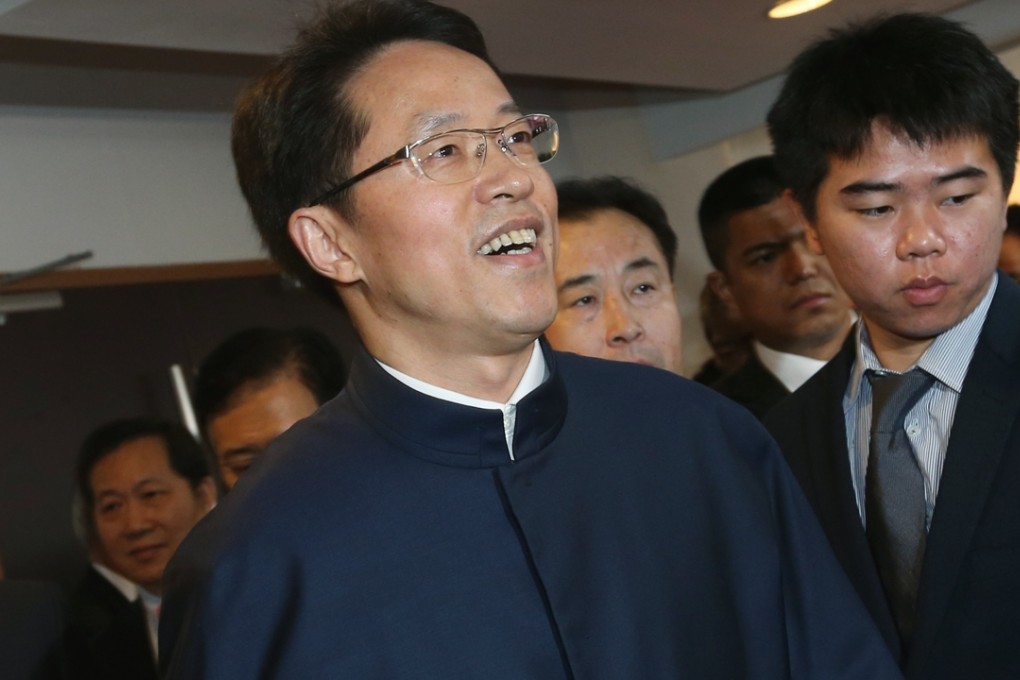Beijing’s top official in Hong Kong brands Mong Kok rioters ‘radical separatists inclined to terrorism’
Liaison office director Zhang Xiaoming reflects Beijing’s harder line on social unrest in Hong Kong

Beijing’s top man in Hong Kong broke his silence over the Mong Kok riot on Sunday, branding those who took part as “radical separatists” who were “inclined towards terrorism”.
The searing indictment by Zhang Xiaoming, director of the central government’s liaison office, was an indication of Beijing’s tougher line on social unrest in Hong Kong, putting the rioters in a similar category with separatists in the Tibet and Xinjiang regions.
But when asked if Hong Kong needed to enact its own national security legislation under Article 23 of the Basic Law in the wake of Monday night’s violence, Zhang said the two issues were not at present related.
Zhang offered his remarks yesterday after the spring reception of the rural interests group Heung Yee Kuk, almost a week after the overnight mayhem in one of the city’s busiest districts saw 65 people arrested on rioting and other charges.
“We, like many Hongkongers, were shocked and distressed by the Mong Kok riot,” said Zhang. “I strongly condemn the violent and illegal acts of … those thugs.”
The actions of the “radical separatists” were “leaning towards terrorism”, he added.